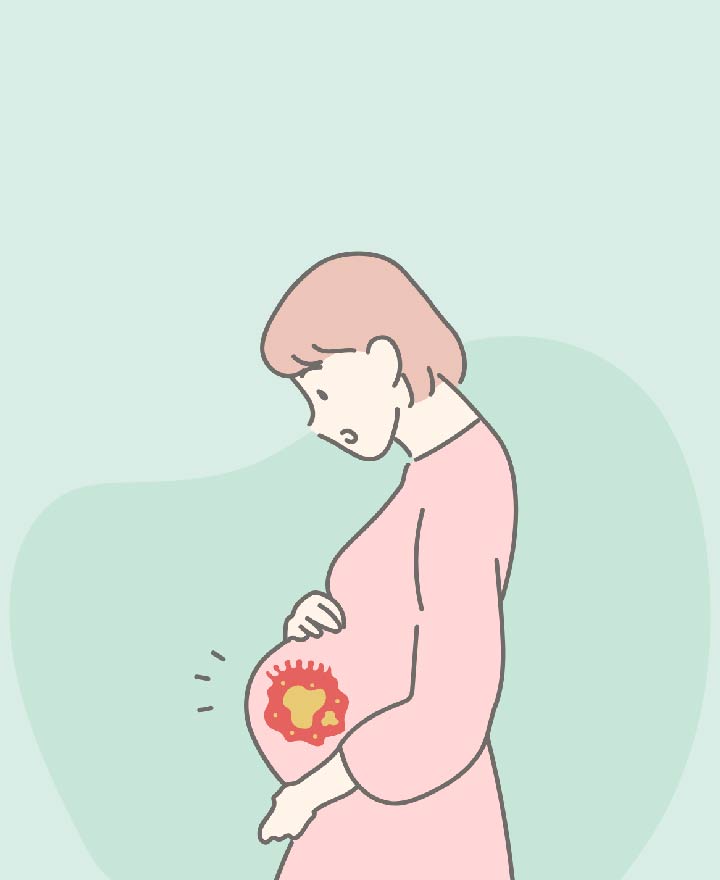

Pregnancy and Sexually Transmitted Diseases
Sexually transmitted diseases commonly referred to as STDs or STIs are caused by sexual contact between infected persons. While it is dangerous for anyone the risks may be high during pregnancy. Read on to know how STDs spread and what you can do to keep your unborn baby safe.
What are Sexually Transmitted Diseases (STDs)?
Sexually transmitted diseases (STDs) are infections transmitted from an infected person to an uninfected person through sexual contact. STDs can be caused by bacteria, viruses, or parasites.
Examples include gonorrhea, genital herpes, human papillomavirus infection, HIV/AIDS, chlamydia, and syphilis.
Can STD be passed from a mother to baby during Pregnancy?
Yes, certain STDs can be transmitted from mother to fetus during pregnancy or at birth. Some examples are gonorrhea, chlamydia, syphilis, and HIV.
This is the reason why it is crucial that all pregnant women get tested and do every serology recommended, since STD can have severe consequences for the unborn child, or lead to stillbirth in the worst-case scenario.
If any infection is detected, the doctor will put you on a safe and appropriate STI treatment plan.
Symptoms of STDs
The common symptoms of STDs in female patients are:
● Bumps, rashes or soreness around the vagina or anus
● Rashes
● Swelling in the vagina
● Bloody discharge (not related to menstruation)
● Yellowish vaginal discharge
● Extreme pain during intercourse
● Pain, redness and itching in the vagina and anus
● Fever and chills
● Body ache
How can STDs affect my pregnancy and their treatment options
Some of the most common STDs that can affect pregnancy include:
● Chlamydia
While Chlamydia is not transmitted to the baby in your womb, it can cause an eye infection in the baby immediately after birth. To treat it, the mother is given antibiotics and the baby is given eye ointment as soon as he is born.
● Genital herpes
While herpes isn’t transmitted to the baby, if the baby comes in contact with the affected genitalia of the mother during delivery, he may get the infection. Hence, a C-Section is usually performed in such cases.
● Gonorrhoea
Gonorrhoea doesn't cause any harm to the foetus. However, if it gets transmitted to the baby, it may develop an eye infection which can lead to blindness. As a form of treatment, the mother is given antibiotics and the baby is administered an eye ointment postpartum.
● HIV/AIDS
HIV/AIDS is the most widely known STD that affects many people worldwide. Though it is an incurable disease, with current medical advances an unborn child is safe in the womb even if the mother is HIV positive.
● Syphilis
Syphilis is a serious STI that gets transmitted to the foetus and can cause premature birth and severe complications in the newborn. To prevent this, regular medicines should be taken by the mother throughout her pregnancy to control symptoms and to keep the baby as safe as possible.
How can I protect myself from STDs during pregnancy?
The safest option is to abstain from any sexual activity during your gestation period. However, that may not be the most practical option. Hence, ensure to use proper protection every time you engage in any sexual activity.
Conclusion
STDs during pregnancy can pose various dangers to your unborn child. When detected, the doctor will recommend a treatment plan based on type and intensity of the STD.
One of the important components of our overall wellness is also being financially secured. Healthcare emergencies can happen any time, but a good health insurance can protect you from such uncertain situations. To know more about it, click here
Source: Clevelandclinic, Cdc.gov
Disclaimer: This blog provides general information and discussions about health and related subjects. The information and other content provided in this blog, website or in any linked materials are not intended and should not be considered, or used as a substitute for, medical advice, diagnosis or treatment. Kindly contact your Doctor before starting a new medicine or health regime.
Related Articles
Anemia During Pregnancy - Types, Symptoms And Treatment
Postpartum Depression and Baby Blues - What's the Difference
Do Yeast Infections Impact Pregnancy
5 Most Important Reasons to Freeze Your Eggs
Published on January 12, 2023

















 Health Insurance
Health Insurance  Travel Insurance
Travel Insurance  Car Insurance
Car Insurance  Cyber Insurance
Cyber Insurance  Critical Illness Insurance
Critical Illness Insurance
 Pet Insurance
Pet Insurance
 Bike/Two Wheeler Insurance
Bike/Two Wheeler Insurance  Home Insurance
Home Insurance  Third Party Vehicle Ins.
Third Party Vehicle Ins.  Tractor Insurance
Tractor Insurance  Goods Carrying Vehicle Ins.
Goods Carrying Vehicle Ins.  Passenger Carrying Vehicle Ins.
Passenger Carrying Vehicle Ins.  Compulsory Personal Accident Insurance
Compulsory Personal Accident Insurance  Travel Insurance
Travel Insurance  Rural
Rural